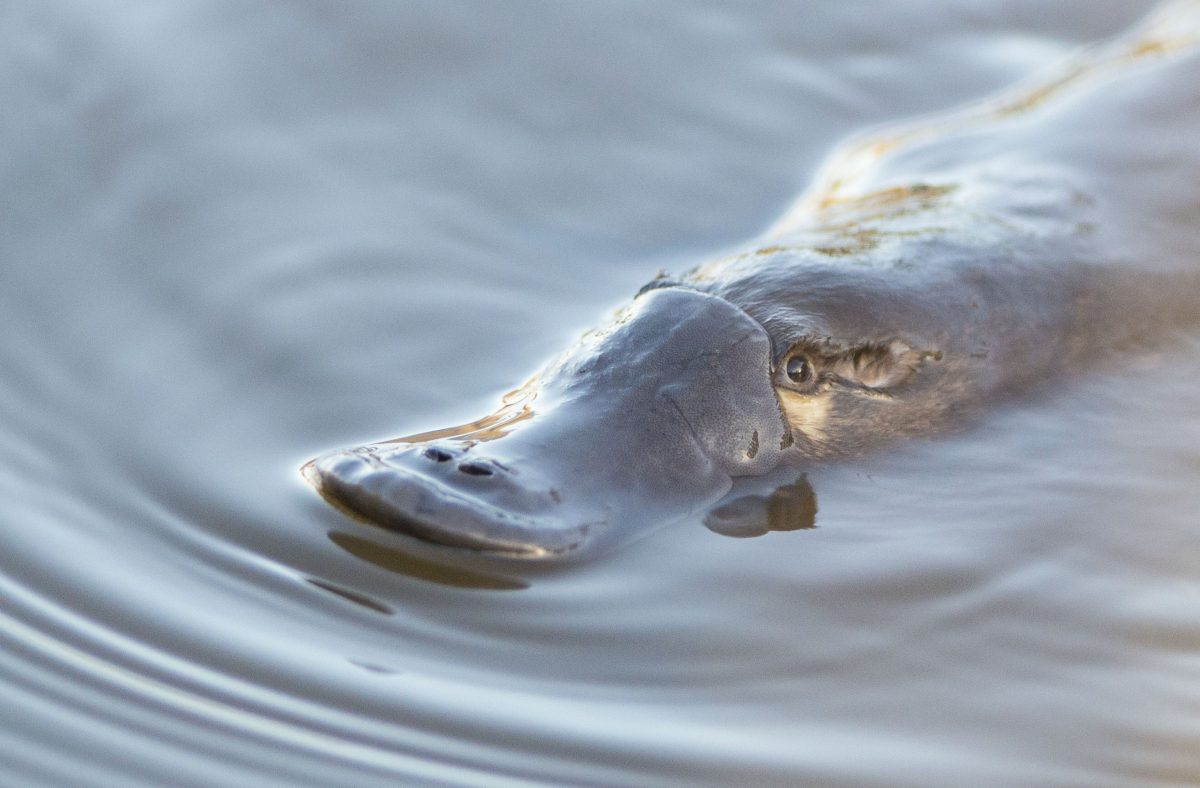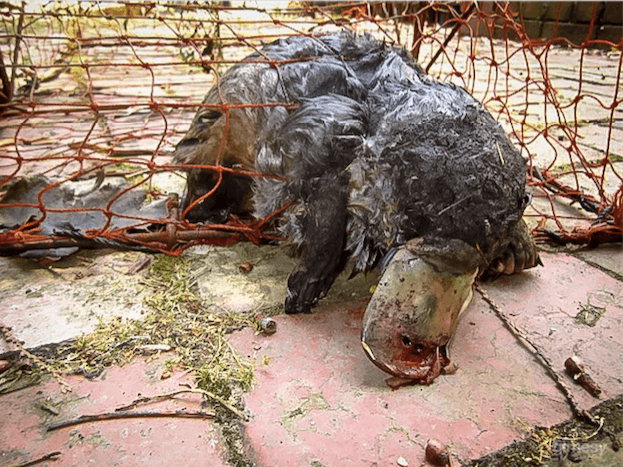
‘Opera house’ yabby traps can be deadly to platypuses. Photo: Supplied.
Content warning: This story contains images which may distress some readers.
Anglers still using ‘opera house’ style yabby nets risk killing native wildlife as well as facing hefty fines.
With spring approaching, and as we head back into the great outdoors, recreational anglers are being reminded that yabby traps are now banned in all NSW waters.
The traps were banned in April 2021 to help prevent inadvertent capture of native wildlife such as the endangered platypus.
Anglers are being encouraged to use eco-friendly open pyramid lift nets or hoop nets, instead of ‘opera house’ traps, in all waters where recreational yabby fishing is permitted.
Unlike the old-style traps, the open-top lift design of the new nets will allow non-target species such as platypus, birds, and turtles to exit the nets if they inadvertently swim in while searching for food.
Department of Primary Industries (DPI) Program Leader Stocking & Fisheries Enhancement Operations, Jim Harnwell said open-top, eco-friendly nets must be used in all NSW waters.
“These new, eco-friendly nets are not only great for catching yabbies but they will also help to protect our iconic native aquatic wildlife species,” Mr Harnwell said.
“Fishers should now only be using these open-top nets when targeting yabbies and penalties apply if fishers use the now-banned opera house style traps.”

Traps are contributing to the death of platypuses in NSW. Photo: Mike Sverns Australian Platypus Conservancy.
Australian Wildlife Society National Office Manager Megan Fabian said environmental groups had welcomed the ban which aims to reduce platypus deaths.
“The ban is vital as it prevents native wildlife such as the platypus from becoming entrapped in these nets and drowning,” she said.
Platypus populations have already been heavily impacted by drought and bushfires in many parts of the state.
“At present, the platypus is a protected species in NSW however recommendations have been submitted to the Commonwealth and NSW Government’s scientific committees recommending the platypus be listed as a threatened species under Australia’s and NSW environmental legislation,” Ms Fabian added.
Current monitoring and citizen science projects are calling for a more concerted effort from community members to actively seek out, observe, and document platypuses in the wild, such as the Platy-Project, a new citizen science project that will commence in September.
The project is being run by Dr Gilad Bino, from the Centre for Ecosystem Science at the University of New South Wales (UNSW), in conjunction with the Australian Conservation Foundation (ACF).
Community members will be encouraged to actively seek out, observe, and document platypuses in the wild.
A DPI spokesperson said, by following the rules, fishers could take the lead in fishing responsibly and catching a great feed of yabbies while making a real difference to our environment.
Eco-friendly yabby nets are widely available in tackle stores and other fishing retail outlets across NSW.






